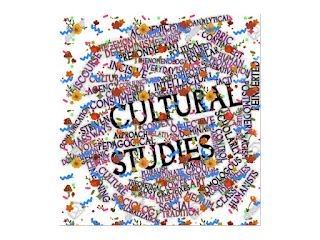Thinking activity: Unit:1 Cultural studies
Hello Readers!!!
Here I am discuss about what is culture, and cultural studies and four goals of cultural studies. This activity given by Dr Dilip Barad sir click here to visit the blog.
As we know that the concept of culture is deeply contested in between 1920 and 1950 alone, at least one hundred and fifty seven definition were presented. Having undergone dramatic transformation over the course of at least two centuries, the notion of culture is ubiquitous in political discourse yet conceptually elusive. Core debate revolve around the content of culture, it's relationship to society and civilization as well as it's function and role in the human condition. Having deliberately dealt vaguely with the term thus far. The conclusions I draw, are talk of 'Cultures' should be replaced by talk of 'Culture', with recognition of the mass of complexities which enter into our cultural lives, that culture should serve particular ends, that the culture of institutions should be guided by three core values.
The notion of culture was explicitly normative; representing, more often that not, eighteenth and nineteenth century understandings of socie-psychological sophistication. Matthew Arnold's Culture and Anarchy epitomized this belief. Arnold held that culture is 'a pursuit of our total perfection by means of getting to know, on all the matters which most concern us, the best which has been thought and said in the world; and through this knowledge, turning a stream of fresh and free thought upon our stock notions and habits'; 'the cultural we recommend is, above all, an inward operation'. For Arnold, cultural was a remedy to such human failing as 'the want of sensitiveness of intellectual conscience, the disbelief in right reason, the dislike of authority'. The goal of culture was, therefore, to overcome barbarity and realise higher goods, such as intellectual conscience, reason and deference to authority, encapsulated in a broad, neo-classical understanding of civilization. Culture become, therefore, associated with products which were seen to embody these goods-classical music, opera, literature and haute cuisine.
What is cultural studies?
Cultural studies is an innovative interdisciplinary field of research and teaching that investigates the ways in which "Culture" creates and transforms individual experiences, everyday life, social relations and power. Research and teaching in the field explores the relations between culture understood as human expressive and symbolic activities, and cultures understood as distinctive ways of life. Combining the strengths of the social science and the humanities, cultural studies draws on methods and theories from literary studies, society, sociology, communications studies, history, cultural anthropology, and economics.
Four goals of Cultural studies
The notion of culture was explicitly normative; representing, more often that not, eighteenth and nineteenth century understandings of socie-psychological sophistication. Matthew Arnold's Culture and Anarchy epitomized this belief. Arnold held that culture is 'a pursuit of our total perfection by means of getting to know, on all the matters which most concern us, the best which has been thought and said in the world; and through this knowledge, turning a stream of fresh and free thought upon our stock notions and habits'; 'the cultural we recommend is, above all, an inward operation'. For Arnold, cultural was a remedy to such human failing as 'the want of sensitiveness of intellectual conscience, the disbelief in right reason, the dislike of authority'. The goal of culture was, therefore, to overcome barbarity and realise higher goods, such as intellectual conscience, reason and deference to authority, encapsulated in a broad, neo-classical understanding of civilization. Culture become, therefore, associated with products which were seen to embody these goods-classical music, opera, literature and haute cuisine.
What is cultural studies?
Cultural studies is an innovative interdisciplinary field of research and teaching that investigates the ways in which "Culture" creates and transforms individual experiences, everyday life, social relations and power. Research and teaching in the field explores the relations between culture understood as human expressive and symbolic activities, and cultures understood as distinctive ways of life. Combining the strengths of the social science and the humanities, cultural studies draws on methods and theories from literary studies, society, sociology, communications studies, history, cultural anthropology, and economics.
Four goals of Cultural studies
- cultural studies transcend the confines of particular discipline such as literary criticism or theory.
- Cultural studies is politically engaged.
- Cultural studies the separation of 'high' and 'law' Elite popular culture.
- cultural studies in allies not only the cultural work but also the means of production.
How is understanding 'Power' at the center of Cultural studies?
Cultural Studies reads 'power' with critical insights, it makes the students and scholars 'politically incorrect'. This also makes it difficult for cultural studies to survive in the academia where political correct and right wingers are in majority.
However, it is but show that the study of cultural studies in incomplete without the study of 'power'. In addition is in our time media is the tool to control the perceptions and the subject the power make extensive use of media. Alll forms of media. Print, Radio, TV electronic, Digital, social.
Thank you...
However, it is but show that the study of cultural studies in incomplete without the study of 'power'. In addition is in our time media is the tool to control the perceptions and the subject the power make extensive use of media. Alll forms of media. Print, Radio, TV electronic, Digital, social.
Thank you...



Comments
Post a Comment